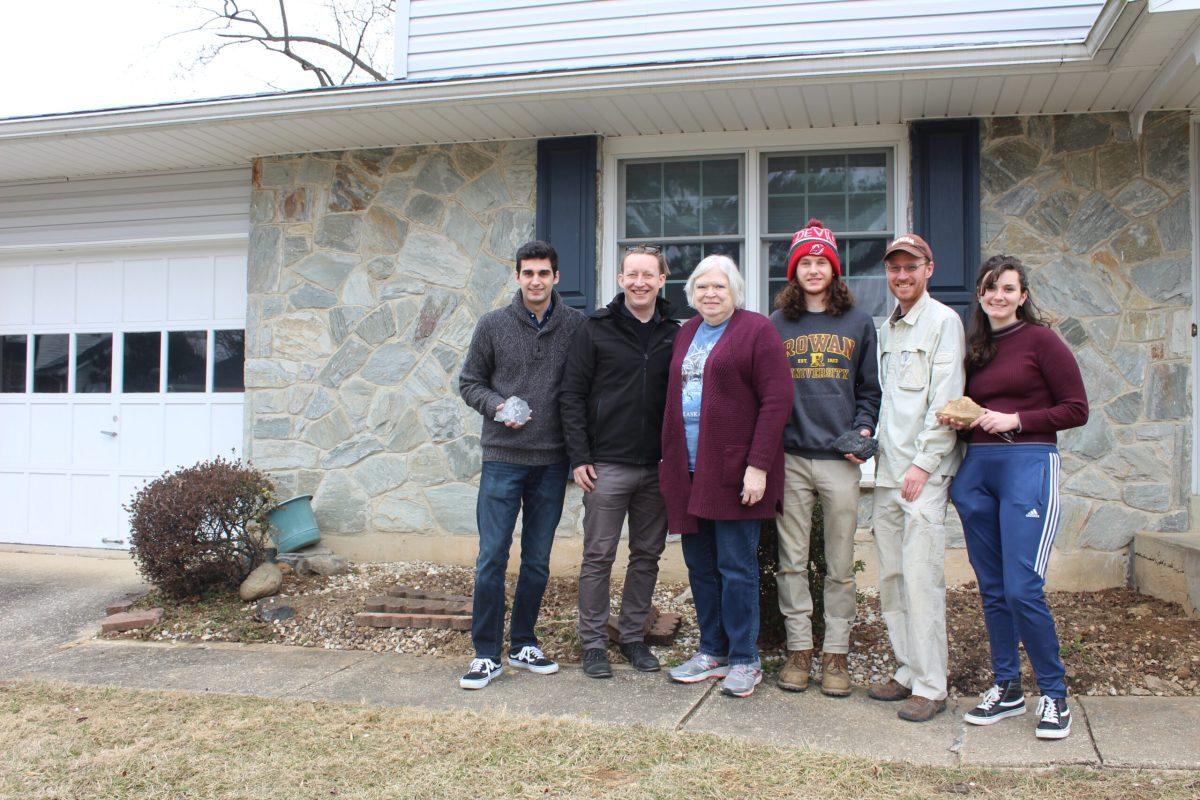Graptolites with astounding preservation, chunks of petrified wood and hunks of dark shale with the carbonized imprints of fern leaves sit in pallets in Joan Wolf’s Wilmington, Delaware basement. They are wedged between huge clams, bags of dirt, jars filled to the brim with shark teeth and the pointed calcium-rich guards of Triassic cephalopods known as belemnites. These are the remains of the work left behind after the death of Joan’s husband, John. Now, after three professors and three students from the Rowan University Department of Geology packed these fossils into cardboard boxes and hauled them into a van, they are going to find second life in an academic context.
“There were a lot of fossils,” said sophomore geology major Matthew Vitale, who helped with the process of moving specimens. “It’s always fun doing stuff with the geology department.”
John Wolf spent many years volunteering in partnership with the the site now called the Edelman Fossil Park, and was known for his ability to find amazing specimens. Although the site was originally operated by researchers primarily at Drexel University, Joan’s decision to donate to Rowan was based on Rowan’s greater academic emphasis on paleontological research.
Sophomore geology major Kyle Macauley performs such research with Assistant Professor of Geology Paul Ullmann, who specializes in vertebrate paleontology of dinosaurs.
“It was a really good experience,” Macauley said. “Joan seemed to be really passionate about what she and her husband used to do together. It was nice to see that she seems really keen on helping the next generation.”
The John and Joan Wolf Teaching Collection, as these specimens will come to be known, will be an invaluable teaching tool to university students. As one of the newest departments at Rowan University, the Department of Geology has not yet had sufficient time to amass a collection of teaching specimens. Many lab lessons are taught through fossil kits, which, while serving illustrative purposes, do not always represent samples that students are likely to see or find in the field. The John and Joan Wolf Teaching Collection will expand the department’s representations of both vertebrate and invertebrate fossils found within the region.
“It’s always good to have something that you can hold and move around yourself, versus on a page,” Macauley said.
According to Vitale, the timing of the donation dovetails with the content currently taught in both historical geology and invertebrate paleontology courses. If the students have anything to do with it, then the fossils donated generously by Joan Wolf in honor of her late husband John will preserve the spirit of paleontological exploration for future generations.
For comments or questions about this story email [email protected] or tweet @thewhitonline.

























































































































































!["Working with [Dr. Lynch] is always a learning experience for me. She is a treasure,” said Thomas. - Staff Writer / Kacie Scibilia](https://thewhitonline.com/wp-content/uploads/2025/04/choir-1-1200x694.jpg)









































